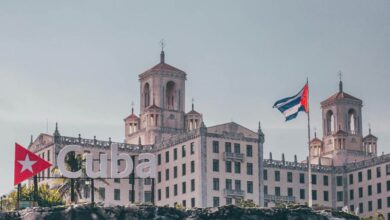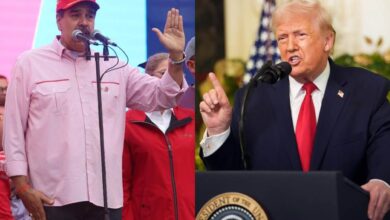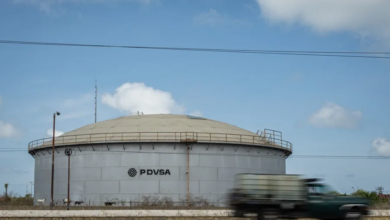Argentina tries to keep its largest oil company in the courts of New York
In the first hearing of the trial, the Argentinian delegation made it clear that litigation should not continue outside its national territory

LatinAmerican Post | Jorge Ovalle
Listen to this article
Yacimientos Petrolíferos Fiscales SA (YPF), the main Argentinian oil company, faces an increasingly complicated future. In 2012, under Cristina Kirchner's Government, what was known as Kirchnerism, the Argentinian State expropriated this company from the private hands that had bought it since the late 1990s.
Leer en español: Argentina trata de conservar su mayor petrolera en las cortes de Nueva York
The negotiation was not easy, of course, but in the end the majority shareholder, the Spanish group Repsol, left with a government bond amount close to $ 5 billion dollars. However, María Eugenia Estenssoro, an Argentinian parliamentarian who abstained from voting in favor of this project at the time, assures that the purchase of the State amounted to $ 8,900 million dollars for a company that was valued at $ 6,000 million dollars, according to Infobae.
The decision at the time was not accepted unanimously, because the state procedure to take over the company did not seem appropriate. However, one of the reasons that most motivated Kirchner was the intention of Repsol's Spanish companies to sell their share to a third party in order to capitalize in the Middle East. Seven years after this decision the consequences are more and more noticeable, because not only it was a procedure that left many concerns, but also it caused the controversial case that now has the Argentinian State against the wall.
Expropriation brings lawsuits
Burford Capital, a company that is responsible for buying large corporate disputes, decided to represent the interests of the minority shareholders of YPF (Petersen Energía Inversora SA, specifically) at the time of the expropriation in 2012, that is, those who did not receive the 5,000 million dollars in government bonds.
According to Burford, the YPF statutes explicitly stated the need to present new business alternatives if someone took most of the shares, which did not happen, as Infobae also reported. At the time, Axel Kicillof, who served as Deputy Minister of the Economy and was one of the company's auditors, said that paying minority shareholders meant falling into a bear trap and that the State did not have to pay for that. Apparently, American justice thinks otherwise.
Read also: Citgo's legal troubles continue to affect the Venezuelan government
This Thursday the first hearing of the case was held in the courts of the Southern District of New York, presided by Judge Loretta Preska. In it, the Argentinian delegation led by the treasury attorney, Bernardo Saravia, argued that this court lacks the jurisdiction to take this case, which they argue must be resolved in the Argentinian courts. A few days ago, the Supreme Court of the United States rejected a first request from the Argentinian delegation to transfer the trial to their country, but they continue fighting for that outcome in this new scenario.
The validity of this argument monopolized the discussion on this first day, in which Judge Preska pressed for an agreement between the parties to avoid litigation. A representative of the Argentinian delegation explained to the newspaper La Nación why they would not seek an agreement: "This has a political background, it is not a case that is resolved merely commercially," he said.
Why is the process of the case held in North American territory and not in Argentina? The main reason for this case being established in the courts of southern New York is the investment in Wall Street of those represented by Burford. The actions of their clients were on Wall Street and the decisions of the Argentinian State led these people to bankruptcy, that is the reason behind the claim.
A bad Argentinian history in the American courts
The Argentinian State, for its part, also asks why a case of this type should be held in US soil and has been fighting for about two years to move it to Argentina. However, the US courts have already ruled three times against him, the most recent being the ruling of the Supreme Court, headed by Judge Loretta Preska, who did not even consider the appeal, but dismissed completely, as was reported from the courthouse.
According to information provided by El Clarín, the new defense strategy of the Argentinian Government is to prove that the purchase of 25% of the shares that Petersen bought at the time, and that belonged to Repsol, was made in fraudulent terms. This new argument would not only dismiss the case, but would challenge the aspirations of Burford Capital to get involved in this case.
The new chapter will happen on July 11, where Burford Capital and the Argentinian State will meet to present evidence and hearings, despite the limitations argued by Argentinian lawyers of the impossibility of presenting witnesses in the United States. This judgment is another step in the process for which the Argentinian State may end up paying the nearly 3,000 million dollars that constitute the lawsuit, which makes YPF expropriation an even more questionable decision.





